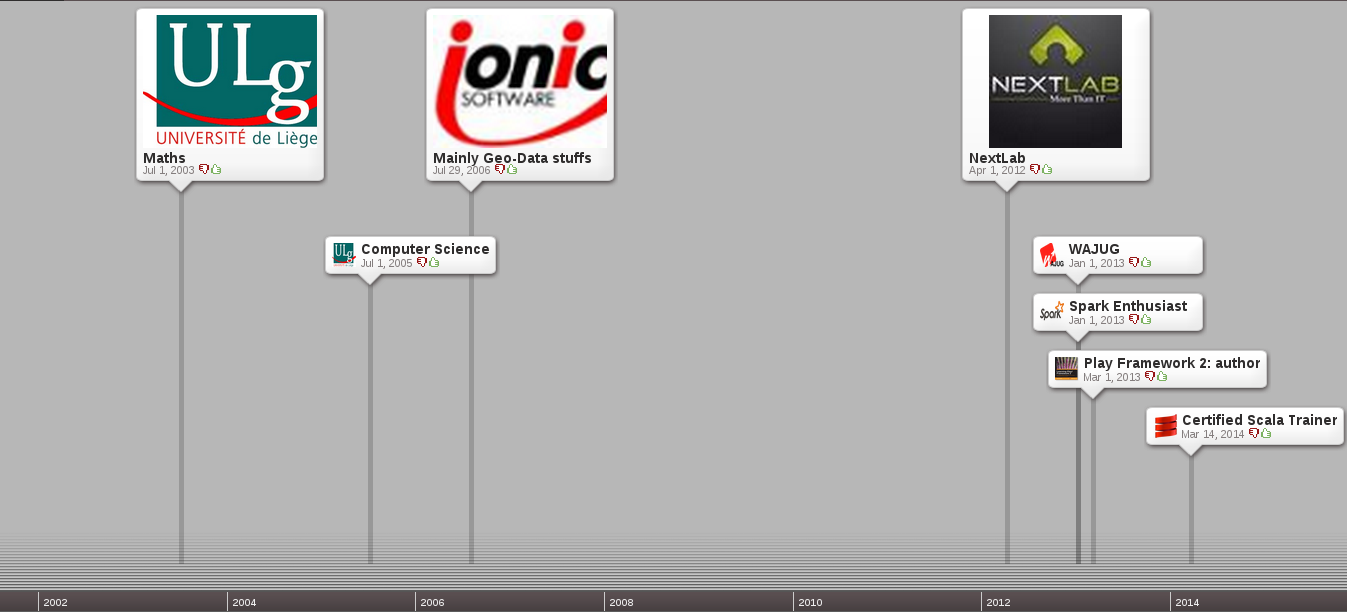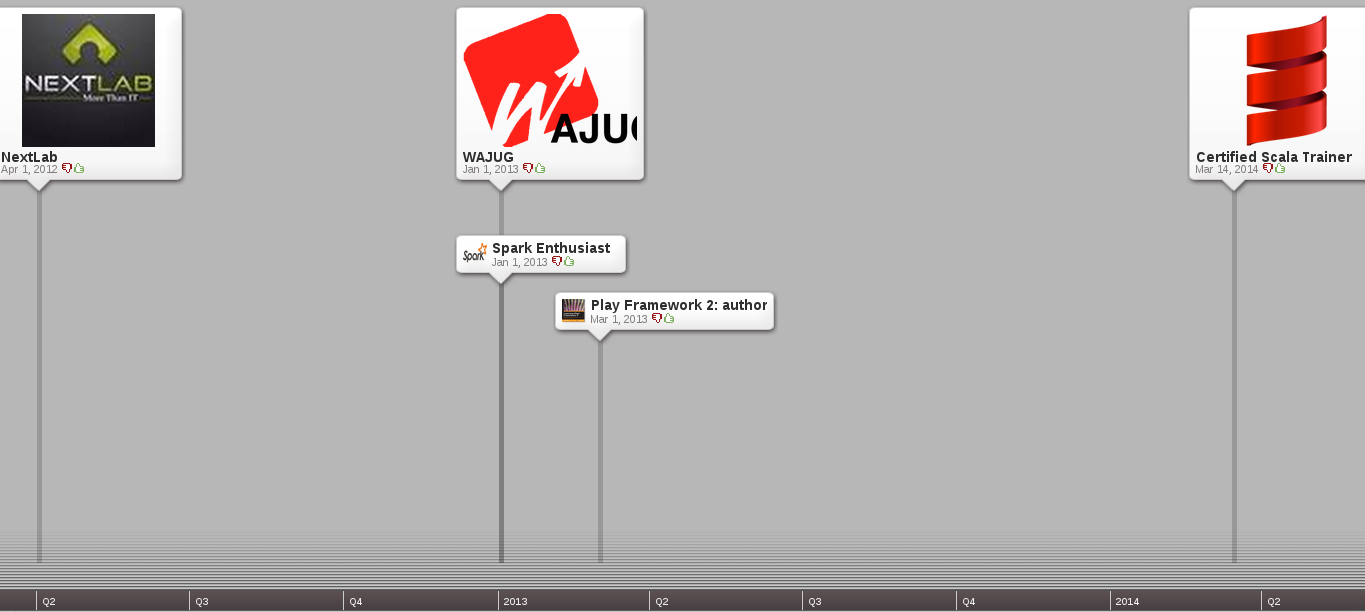The improbable story of:
FP AND ENTREPRENEURSHIP
Who ARE WE?
Xavier TORDOIR
ANDY PETRELLA


Studying =:= Future[Option[Job]]
Grab the basisFind your ways
Pick some and dig
Mémoire: polishing phase
Job =:= (Work => Option[Experience]) => Option[Money]
Working will probably raise your experience
Based on this experience, you might get some money
Experience might not be enough
It will depend on the kind of experience
It's not that easy
Proposal:
Job =:= (
(Work, Explore, Learn)
=> Option[
Expertize
]) =>
Option[(Money,
() => Future[Option[Job]]
)]
Still some work *sight*
But never stop learning, nor exploring
Expertize is like experience, yet rarer
Money, the unfortunate obligation
Create your secret sauce, a lazy call to Job
Working in IT
Everything is distributed
Clues for answers are in data
Answer questions
More and More data
Industrial data
- energy grid
- production lines
- finance
- transport
- ...
More and More data
People data
- web 1.0 : few control content
- web 2.0 : lots of end-users manual feed
- web x.y : lots of captors per user
More and More data
Why do we collect data?
- We always miss some at some point
- something of value is encoded
- collaborative consiousness
Mobile? REALLY?
Providing content = aggregate distributed sources
BUT in small quantity (network is the bottleneck)
Yes data is available from anywhere
IT is a commodity
...even development
Everything done is distributed
Software (SaaS):
- user management, social login
- product support
- online billing/payment
- access to data sources
Infrastructure (IaaS): storage, servers...
A tech startup
Managing distributed resources is key!
-
Gathers distributed datasources
- Calls distributed services
- collects raw data
- does some aggregation
- Must be able to scale resources and costs
FP?
Asynchronous calls
FP describe the result you want, not how you get it
Failure management
Threads, cores, servers, datacenters
If FP gets a global adoption it will be because it solves issues related to the distributed environment.
Complexity of distribution
FP in the industry?
Examples of popular languages with OO and FP
- javascript
- ruby
- Java 8
- scala
Await[_]
Eval[Expression]
Scala
val getQueryParameter[T] =
(request:Request) =>
(name:String) =>
request.query.parameters.get(name).as[T]
abstract class Request[T](val body:Body[T])
extends Query with Header {
def parser:BodyParser[T]
val content:Option[T] = parser(body)
def send(to:Service) = ???
}
case class HttpRequest[T](
method:Method,
body:Body)(implicit parser:BodyParser[T])
extends Request(body) {
// ...
}
Play! Framework 2
Async HTTP
Event driven/Concurrency using Actor
Non-blocking IO (reactive: Iteratee/ CPS)
Stateless
object Dummy extends Controller {
// return async'ly the # of users w/ name start'g w/ q"char"
def countAs = Action.async { request =>
val char = request.queryString("char")
val all:Future[Seq[User]] = users.all // or WS.url
Ok(all.map(_.count(_.name startsWith "a")))
}
}
Akka
Message passing style
Messages are immutable
Actors are mutable (stateful)
Thread safety by confinement
Location transparency
class UserRepo extends Actor {
var users = Set.empty
def receive = {
case Add(user:User) =>
users = users + user
case All =>
sender ! users
case Get(id:String) =>
user = users.find(_.id == id)
sender ! user
}
}
object AkkaApp extends App {
//...
val repo = system.actorOf(Props[UserRepo])
// add
repo ! Add(User(1L, "")
//get
val user = repo ? Get(1L)
}
Spark
Tends to resolve Big Data solution flaws
Provides an abstraction on distributed data
Using an extended functional style (not only MR)
Represents a distributed computation as a Graph
In-Memory!
val sc = new SparkContext(/*...*/)
lines = sc.textFile("hdfs://...")
errors = lines.filter(_.startsWith("ERROR"))
errors.filter(_.contains("HDFS"))
.map(_.split('\t')(3))
.collect()
FP |+| Entrepreneurship
By andy petrella



